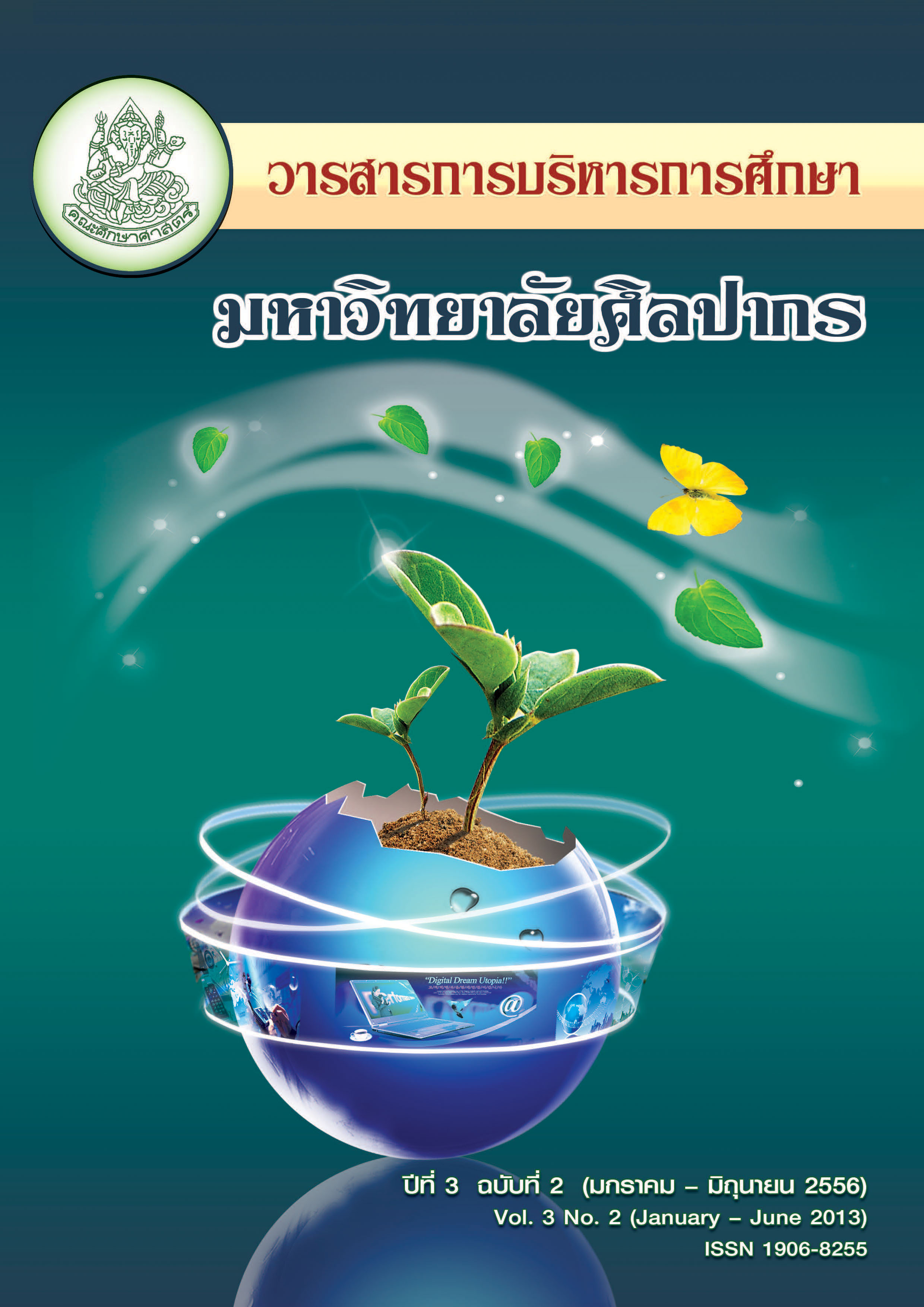แนวทางการนำหลักธรรมาภิบาลมาใช้ในการบริหารงานองค์กรกระบวนการยุติธรรม : ศึกษากรณีกรมสอบสวนคดีพิเศษ
บทคัดย่อ
การศึกษาวิจัยเรื่องแนวทางการนำหลักธรรมาภิบาลมาใช้ในการบริหารงานองค์กรกระบวนการยุติธรรม:ศึกษากรณีกรมสอบสวนคดีพิเศษ มีวัตถุประสงค์เพื่อศึกษาปัจจัยที่เกี่ยวข้องและปัญหาอุปสรรครวมทั้งศึกษาแนวทางการแก้ไขการนำหลักธรรมาภิบาลมาใช้ในการบริหารงานกรมสอบสวนคดีพิเศษ เป็นการศึกษาวิจัยแบบผสม(Mixed Method) ในเชิงปริมาณ(Quantitative Study) ได้ทำการเก็บรวบรวมข้อมูลกับเจ้าพนักงานสอบสวนคดีพิเศษ เจ้าหน้าที่คดีพิเศษ และข้าราชการในตำแหน่งทั่วไป จำนวน 289 คน และเชิงคุณภาพ(Qualitative Study)ได้ทำการเก็บรวบรวมข้อมูลโดยวิธีสนทนากลุ่ม (Focus Group)ข้าราชการปฏิบัติหน้าที่ฝ่ายบริหารและฝ่ายปฏิบัติการของกรมสอบสวนคดีพิเศษ จำนวน 10 คน
จากผลการวิจัยพบว่า
1) ด้านการศึกษาวิเคราะห์เปรียบเทียบปัจจัยที่เกี่ยวข้องด้านปัจจัยส่วนบุคคลกับการนำนโยบายไปปฏิบัติ พบว่าบุคลากรที่มีรายได้แตกต่างกันมีความคิดเห็นในการนำนโยบายไปปฏิบัติแตกต่างกัน ส่วนด้านปัจจัยส่วนบุคคลกับการบริหารงานตามหลักธรรมาภิบาล พบว่าบุคลากรที่มีสถานภาพสมรสและรายได้แตกต่างกันมีความคิดเห็นเกี่ยวกับการบริหารงานตามหลักธรรมาภิบาลแตกต่างกันอย่างมีนัยสำคัญทางสถิติที่ระดับ .05 และปัจจัยการนำนโยบายไปปฏิบัติที่ส่งผลต่อความสำเร็จการนำหลักธรรมาภิบาลมาใช้ในการบริหารได้แก่ ปัจจัยด้านการติดตามประเมินผล ด้านทรัพยากรนโยบาย ด้านวัตถุประสงค์และมาตรฐานของนโยบาย พบว่ามีความสัมพันธ์อย่างมีนัยสำคัญทางสถิติที่ระดับ 0.01โดยมีค่าสัมประสิทธิ์สหสัมพันธ์ 0.725
2) ด้านปัญหาและอุปสรรคในการบริหารงานตามหลักธรรมาภิบาล ในภาพรวมพบปัญหาที่ต้องได้รับการแก้ไขพัฒนาทุกด้านโดยเฉพาะด้านนโยบายและด้านทรัพยากรมนุษย์ อันเนื่องจากเป็นปัจจัยสำคัญที่จะทำให้องค์กรมีการบริหารงานเป็นไปตามหลักธรรมาภิบาล
3) ด้านแนวทางการแก้ไขปัญหาและอุปสรรค พบว่ากรมสอบสวนคดีพิเศษควรมีการวัดผลและดำเนินการให้นโยบายสามารถทำการศึกษาเข้าใจได้โดยง่ายเป็นรูปธรรม และการนำเสนอผลการดำเนินงานโดยใช้นวัตกรรมเทคโนโลยีสมัยใหม่ และควรมีการผลักดันนโยบายธรรมาภิบาลให้เกิดการนำไปปฏิบัติอย่างต่อเนื่อง
THE IMPLEMENTATION OF THE GOOD GOVERNANCE POLICY IN THE DEPARTMENT OF SPECIAL INVESTIGATION
The objectives of this research were to study the relevant factors and obstacles within the implementation of The Good Governance Policy including delineating how to solve such implementation problems. A mixed method using both quantitative survey research and qualitative research through a focus group was the method approach used for this study. The quantitative research was conducted by surveying the opinions of 289 people employed as government officials at all levels in The Department of Special Investigation and the qualitative data came from a focus group of 10 executives and
practitioners.
The results had revealed that:
1) The related personal factors in good governance policy implementation, it was found that the only official with a different income employed a different policy implementation. As for the personal factors in administration under the principles of good governance; officials who had a different marital status and income expressed different opinions in the administration of the principles of good governance as a statistically significant level at the .05, and the factors affecting the successful implementation of the principles of good governance and management were in the evaluation and on a policy resource basis. Apart from this, it was found that policy goals and standards were significantly associated, with a level of 0.01 and a correlation coefficient of 0.725
2) As for the problems and obstacles in the management under the principles of good governance, generally, these were the main problems, which must be resolved in the development of all aspects of human resources and policy.
3) Any approach to solving the problems and obstacles of the policy implementation should be conducted to measure and understand, preferably, visually including using innovative technologies. The policy should be conducting
continually.




